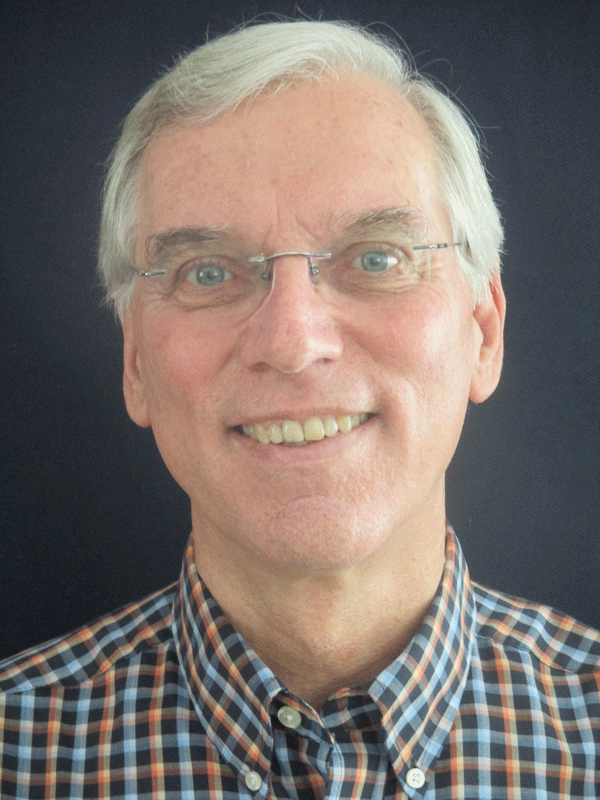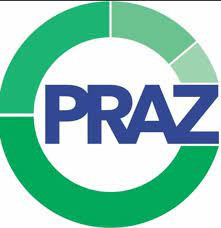
BY Jonah Nyoni THE true essence of great leadership is usually noticeable during times of crisis, complexity and change. I talked to Tim Welsh about that during my visit to Europe, Hungary for the LittWorld Publishing Conference hosted by Media Associates International (MAI). Tim Welsh (T.W) comes from the USA and has served as a missionary, in west Africa, Cote d’Ivoire, or Ivory Coast. He served together with his family in multiple areas such as Christian publishing, mission leadership, Bible teaching and overseeing a Christian radio station.
JN: What are the traits of great leadership from a Christian perspective?
TW: I feel like the most important issue is a person’s character. So, whether it’s a man or a woman, we need to be people of character. That means we need to be consistent in our life. Our life has to back up what we say. So, we can’t just preach about honesty and integrity if we do not live a life that is honest, and a life of integrity. We need to be faithful to our family, to our wife, to our husband. There is also faithfulness and compassion. Sometimes we think of Christian leaders as men and women who have great power and purpose and drive and that’s good, but at the same time, sometimes Christian leaders can walk all over other people. We need to be people who do not do that, but we need to be people who are kind, compassionate and humble.
JN: We live in a world that is changing fast. How do I become flexible, and what is a flexible leader?
TW: Well, a flexible leader is someone who realises that God is still in control and the situation has changed. And we need to adapt to what God is currently doing. So, for instance, when I lived in Ivory Coast, there were times when we went through civil unrest, and there were two different times when we had to evacuate all of our missionaries out of the country. And it was just a matter of trying to recognise what is the right moment to do that. We did that knowing that we may not come back by the grace of God, we came back each time, and our homes had not been destroyed. But I guess, recognising that’s part of God’s plan, and he has allowed us to go through that in His sovereignty. And we learned from it. And we could go back.
And there are other things less drastic than leaving your home. In terms of my own career, right now, in the area of literature and writing, I have written a number of books in both English and French. And now I find myself in a new position of writing some books for children.
And I never would have dreamt that I would be a children’s author. And yet, that’s the way, that’s where I find myself right now. And it’s exciting. But it’s a new position for me and I have to adapt and be flexible with that and learn from that. God has opened up those doors and so I need to follow the way God is leading.
JN: So do I learn flexibility? How did you learn flexibility as a leader yourself?
- Chamisa under fire over US$120K donation
- Mavhunga puts DeMbare into Chibuku quarterfinals
- Pension funds bet on Cabora Bassa oilfields
- Councils defy govt fire tender directive
Keep Reading
TW: There is experiential wisdom and it often comes from being in a situation where you don’t know what to do. And you think through your options, and none of them looks good and it’s having the patience. I think patience is a big part of being flexible. So again, it goes back to being humble and accepting the fact that I don’t have all the answers and waiting on the Lord to do new things. That goes with language learning or living in a new culture, adapting to a different job, a new family situation or anything that requires flexibility.
I mean, ask any mother of a newborn baby, you can make your plan of what you want to do today, but you are totally dependent upon when your baby wakes up and when he/she goes to sleep, you just have to be flexible.
So I think in the same way, as leaders, we understand that God is in control, and God tells us at different times; I want you to do this. At times it’s not part of my plan, but that’s okay. It’s just like the mother with the baby. I want to do the cooking right now, but the baby takes my time. So the dinner will be 30 minutes later. Yes, that is okay.
JN: The world is in a COVID-19 crisis. What is your advice as we face a crisis? How do we stay alert and resilient?
TW: Well, I think there’s a balance between staying alert, and being on your guard that you know. The Scriptures tell us to be on our guard. First Corinthians 16 verse 13, shows that you should be on your guard, be alert, and be sober-minded. So we have to use our minds. God has given us a mind to use. Do not be foolish to think through what you want to do and why, but understand that God is also in control.
So we want to be as wise as we can. At the same time accepting that the Lord allows things into our life. Sometimes they are difficult and even hurtful things that I did not plan on. Ultimately, we are resigned to accepting the sovereignty of God, and knowing that He is still in control.
So we do not strike out in anger. You know, there are times when we need to grieve because of the crisis where maybe we have lost a loved one. Maybe I’ve lost some health, maybe I’ve lost opportunities that I really had my heart set on, and now I do not have them. Those are legitimate times to grieve. There’s a time for grief and there is a time for joy, there’s a time for war, and there’s a time for peace, there’s a time for tearing down, and there’s a time for building up.
Life is about seasons that the Lord allows and he allows them to build us up, and to make us more like Himself. I think we have to keep that in mind so we are to be wise in making our choices, thinking things through but at the same time, humbly accepting that sometimes the will of God is not what I planned.
JN: Finally, How do I develop myself as a leader? How do I learn? Where do I learn? With whom do I learn?
TW: Emphasising the word learning is really the key. I need to have an ongoing attitude of being a learner my whole life. You do not have to go to school to be a learner. You can learn from everyday experiences. One of the greatest joys I have is the time I spend with the Lord every day, in His word and in prayer.
I find that the Lord speaks to me through His Word, and I keep a journal. I think journaling is a very good practice for becoming a learner. I write down ideas as I meditate on the Word of God and that is really foundational in my opinion to becoming a learner. I also think of the idea of learning from others. Sometimes the Lord uses other people, and we can learn from other people, not just from the Bible as the Holy Spirit works in someone else’s life. I learned so many things from my wife as God works through her life.
I learned from my children, and I have learned from my grandchildren. Again, that’s where it requires some flexibility and Christian character. Even when we get old like me, you can still learn from the Lord, and that is a joyful process.
- Jonah Nyoni is an author, speaker, and leadership trainer. He can be contacted on Twitter @jonahnyoni. Whatsapp: +263 772 581 918











